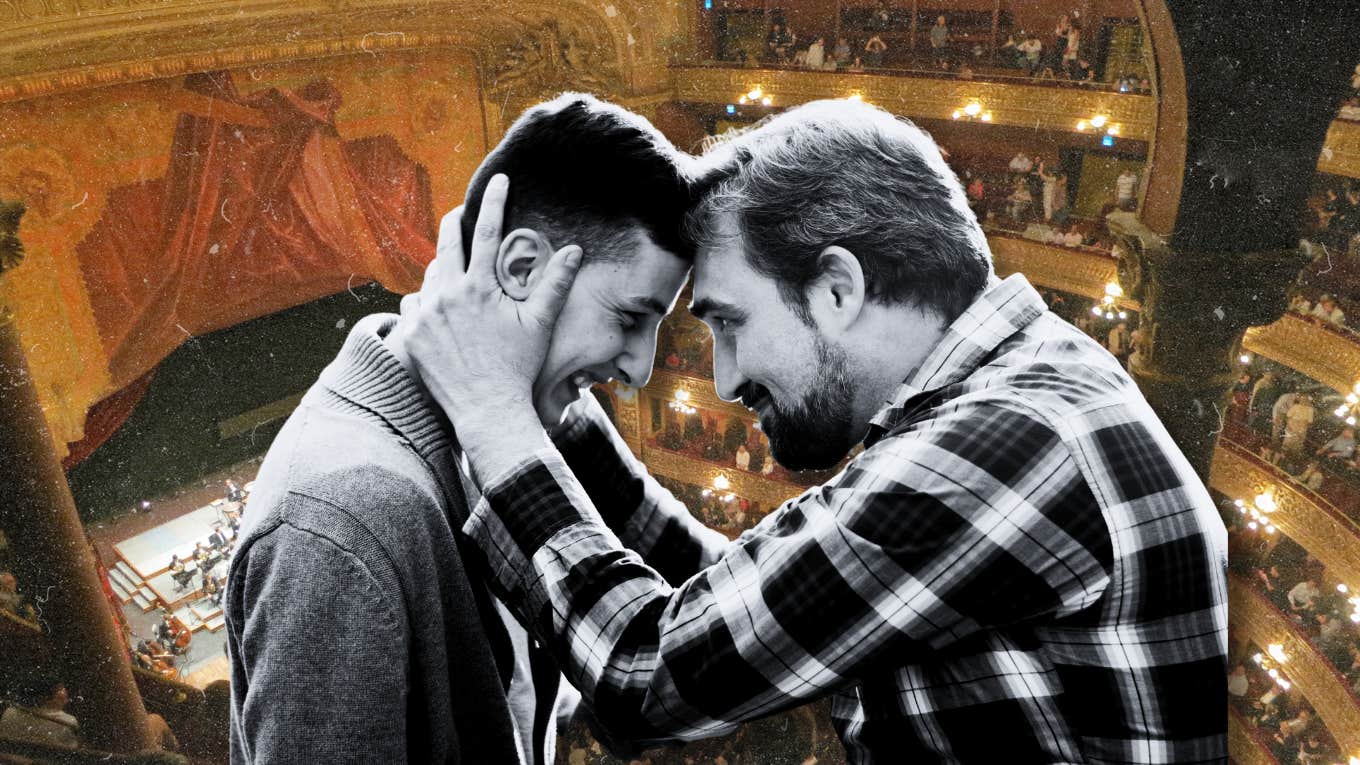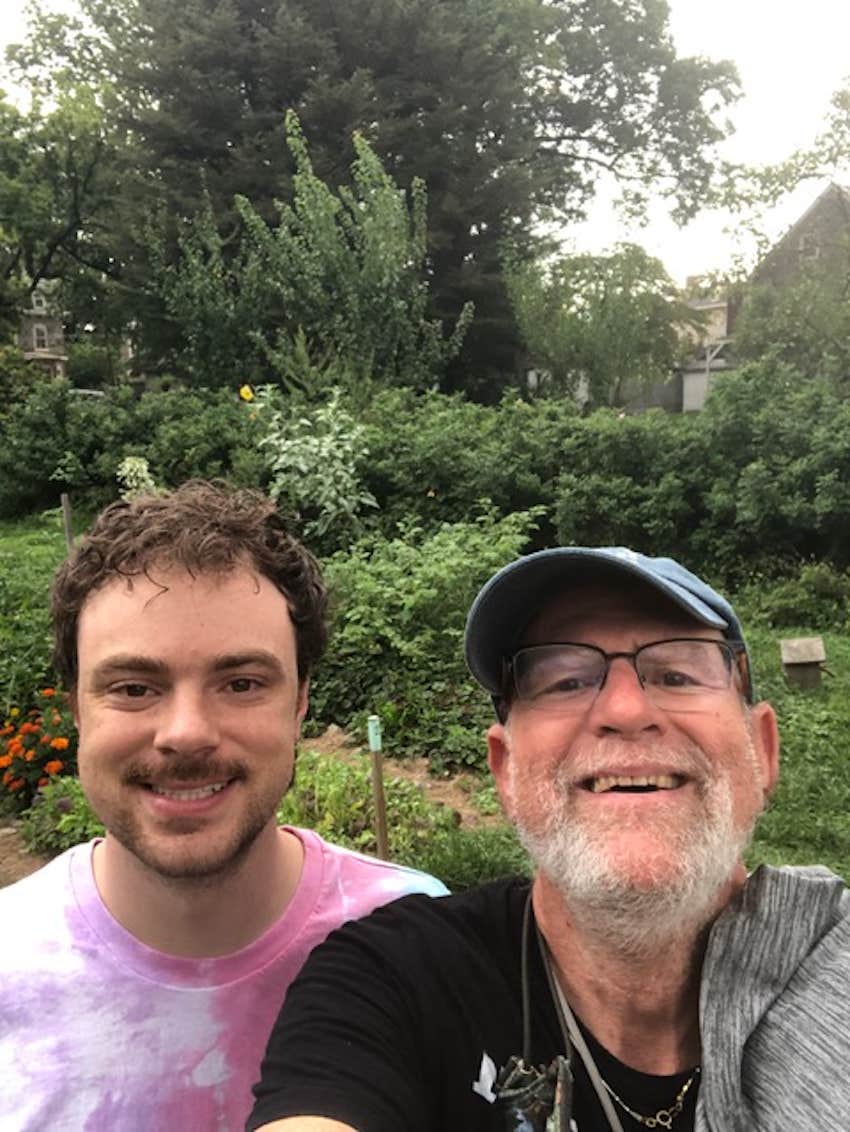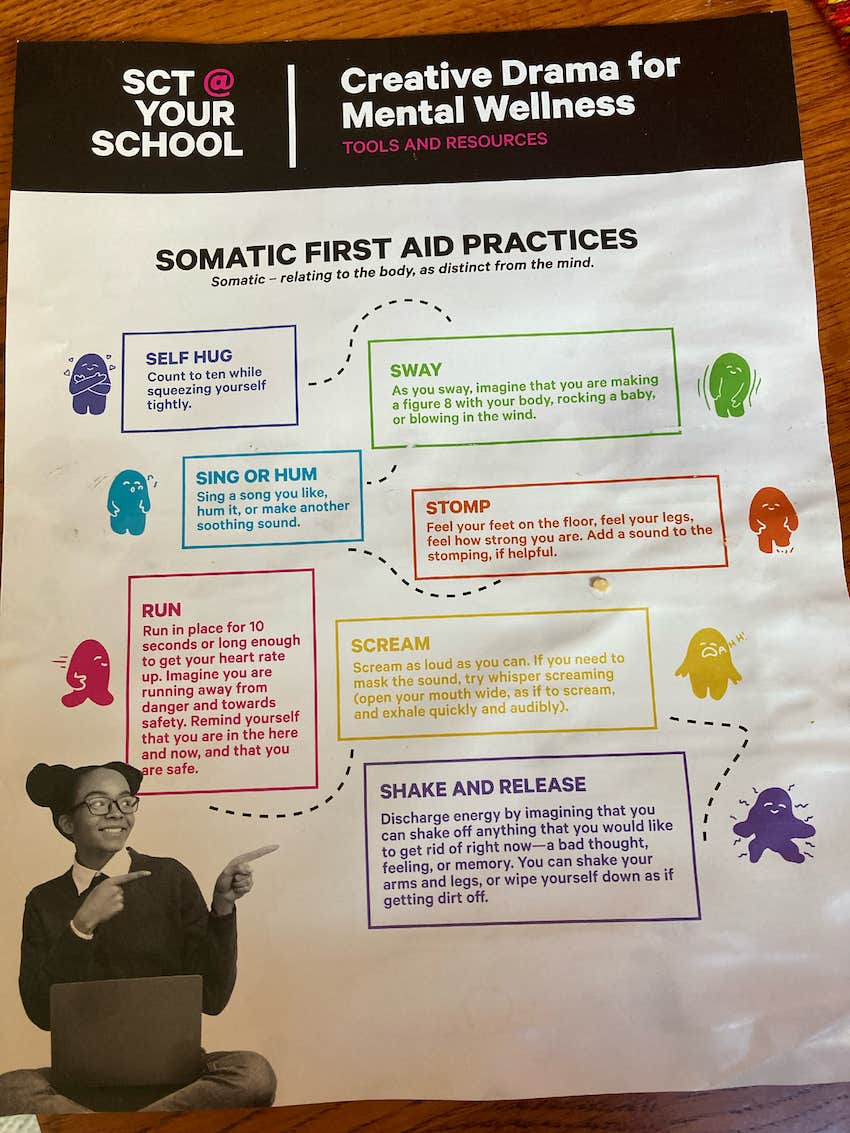The 'Emotional First Aid' Tool I Learned From My Actor Son — That I Now Teach My Patients
Even after 40 years as a therapist, there was more for me to learn.
 milicad, travelcoffeebook | Canva
milicad, travelcoffeebook | Canva My 31-year-old son, Kenyon, has been participating in (at least somewhat) organized acting classes since he was five. He and our neighbor Katie were putting on shows when they were ages three and five, just as children around the world do. But with Kenyon, he was smitten right from his first acting “class”.
As a boy, he was “discovered” by the acting school John Robert Powers through a flier in Seattle. He auditioned for TV at 11, spent a whole month in Los Angeles auditioning, and became an agent's client. All that came to naught, but he knew he was an actor and that has not changed. Today he is an educator with the Seattle Children's Theater.
As his father, I've always been proud of my son. But as a psychologist with an active practice, one thing I did not expect was for Kenyon to teach me a useful form of emotional "first aid" that I hadn't previously utilized. But that's exactly how it happened.
 photo courtesy of the author
photo courtesy of the author
As a kid, Kenyon was very relaxed, but as it often does, adolescence threw him his first real existential crisis. He went from being unflappable and resilient to easily distressed and anxious. But always there was joy in being in a cast and on stage. He had excellent mentors, who encouraged his talent and loved his good looks.
At 18, he came out to his family as gay in his sophomore/junior year at Occidental College. He met the boy who would become his abusive boyfriend. Loyalty is one of Kenyon's great values and he hid the abuse he was suffering from family and most of his friends and the relationship dragged on for seven years. Fortunately, Kenyon’s friends, his maturity, and his desire to get his MFA in theatre led him to make the boyfriend an ex-boyfriend. He decided to attend University of the Arts, Pig Iron Theatre’s Devised Performance in Philadelphia, just as the pandemic was about to strike.
 photo courtesy of the author
photo courtesy of the author
I believe he had a blast his last year at Pig Iron and when he returned to Seattle he vowed to only take a job he wanted. So he lived with his parents for well over a year only applying for jobs within the vibrant Theatre community of Seattle. Of course, I thought this was nuts, but I kept my mouth mostly shut. His mother, however, loved having Kenyon at home. His commitment to his craft led to a part-time but well-paid position as a theatre teacher at Seattle Children’s Theatre. Kenyon had grown so much and weathered the storms of abuse, relocation, COVID-19, and dependence on parents.
In his first month at the children’s theatre, he was exposed to Somatic First Aid. It turns out to be a necessary skill for actors because on any given day 90% of union actors are unemployed and rejection is much more common than being cast.
As a psychotherapist, I have been soothing, supporting, and challenging people for almost 40 years. My training and experience developed my skills for observing distress in its many forms, not all of which expressions are as clear to others as they are to me. I have always been good at giving distress a name that resonates with clients and directing clients in aspects of self-care. These directions have been spontaneous and organic in sessions. While they have often been helpful, I did not have structured and repeatable directions or materials that clients could use as a regular part of being in the world.
Then Kenyon taught me Somatic First Aid, the practice of intentional self-care, self-soothing, and externalizing emotions behaviorally.
Acting, creating, and producing theatre are often intense experiences. Learning a script and making it come to life as a show is life-affirming and challenging. Rehearsals, especially early in the process, are exhausting and stressful. There are tears, hysterical laughter, yelling, exasperation, hugs, and weeping. Stepping into a character and out of yourself in the first moments of every performance makes performers sweat and some even get sick. More than a few actors confess they throw up just before "curtain up".
The Seattle Children’s Theatre managers and producers have had the pulse and the back of their actors, and thus the Somatic First Aid they have taught and supported has been an unseen foundation for their successful and empowering mission.
Here are seven powerful tools of somatic first aid to help when you're scared or feeling anxious
1. Self-hug it out
Wrap your arms around yourself, using your embracing arms squeeze yourself tightly and lovingly. Hold the hug for 30 seconds.
2. Sway and breathe
Imagine you are making a figure 8 with your body or rocking a baby. Breathe and attend to your breath.
3. Sing or hum
A song you like or that carries you to a peaceful or beloved place. Or, make gentle sounds like you might to reassure a scared animal or a child.
4. Stomp around
Let your body express your frustration or anger. Add a congruent sound, “grrrrr” or “arghhh” for example.
5. Run in place
Running in place for 10 seconds to get your heart rate up to 100 beats per minute.
6. Scream it out
Scream as loud as you can. If you need to mask the sound, try whisper screaming (open your mouth wide, as if to scream and exhale quickly and audibly). Or cover your mouth with a pillow and bellow!
7. Shake and release
Discharge energy by imagining that you can shake off anything you would like to get rid of right now—a bad thought, feeling, or memory. You can shake your arms and legs, or wipe yourself down as if getting dirt off yourself.
 Image courtesy of the author
Image courtesy of the author
Expressive therapies, psychodrama, art therapy, music therapy, dance, have long been part of good therapists’ practices. This “poster” offered by Seattle Children’s Theatre, you can be your own calming or releasing agent so you can get on with your life and not be stuck with feelings and emotional states that are recurrent or unhelpful. Be your own therapist!
William "Bill" Meleney is a Washington state-licensed mental health counselor, licensed marriage and family therapist, psychotherapist, and life coach. He has 30 years of experience and expertise in helping clients deal with relationships, parenting, and mental health.

